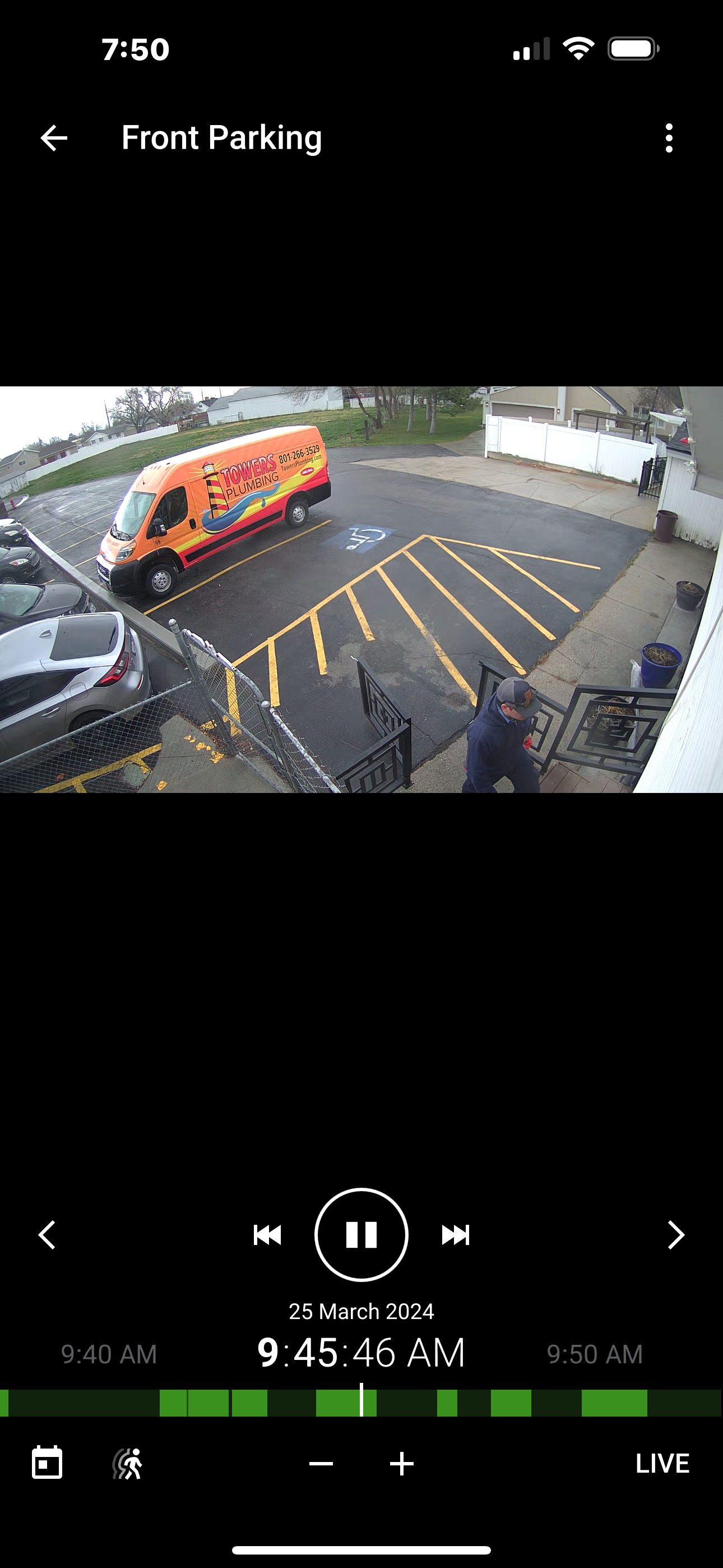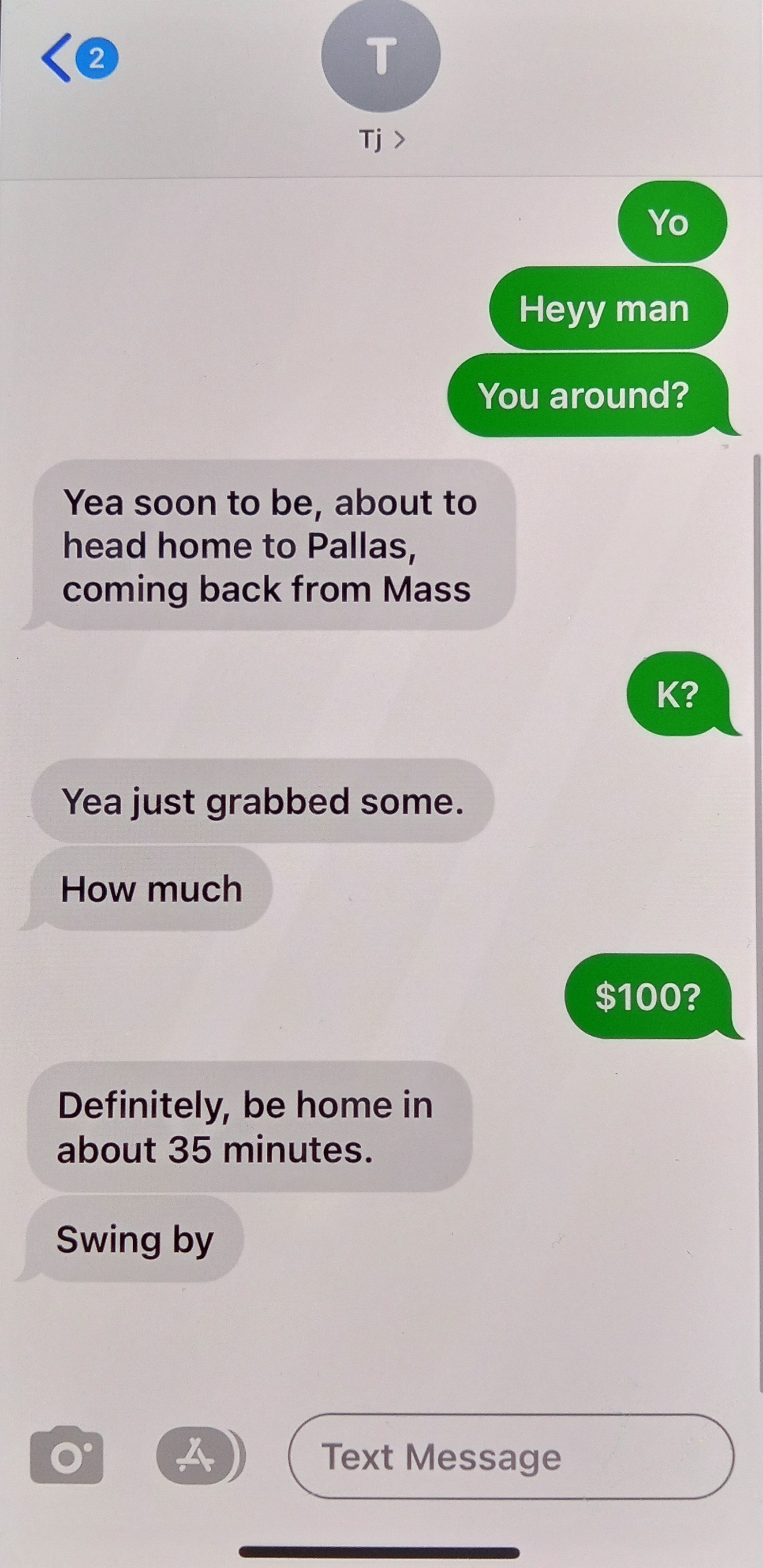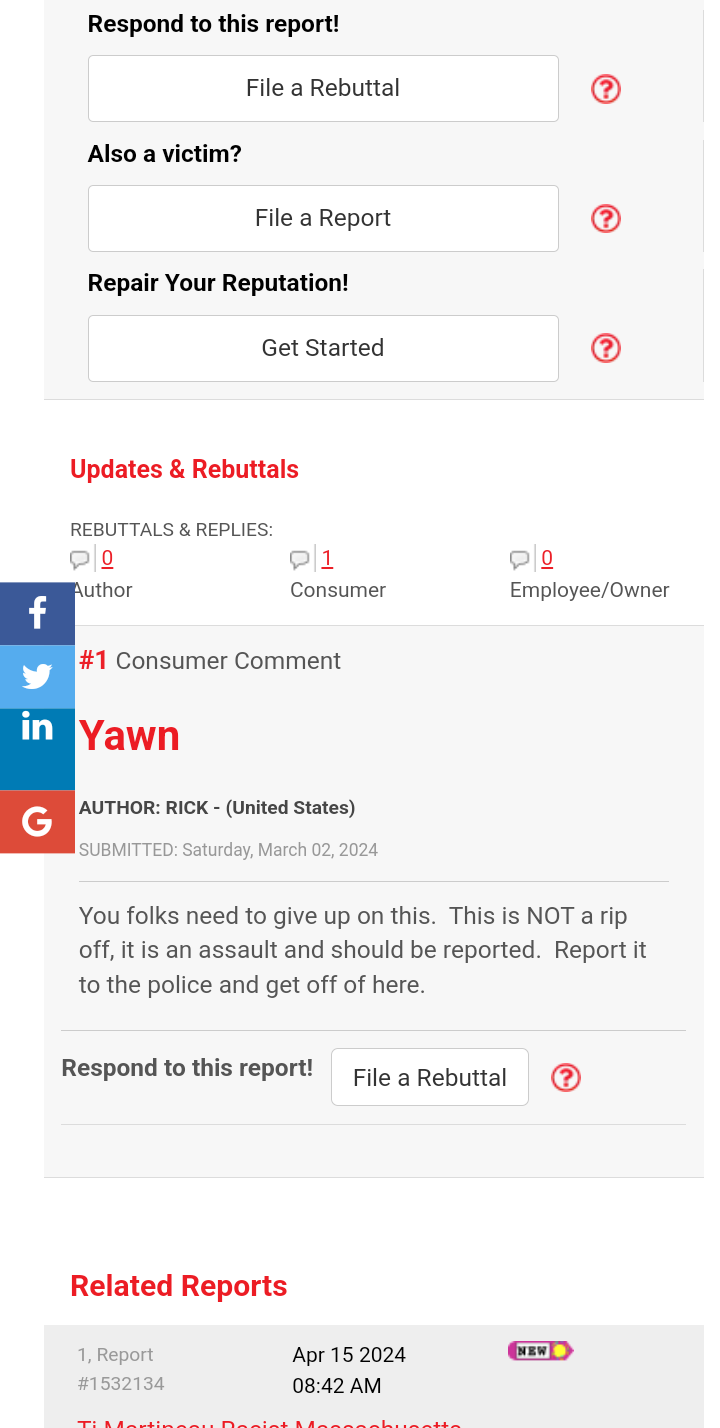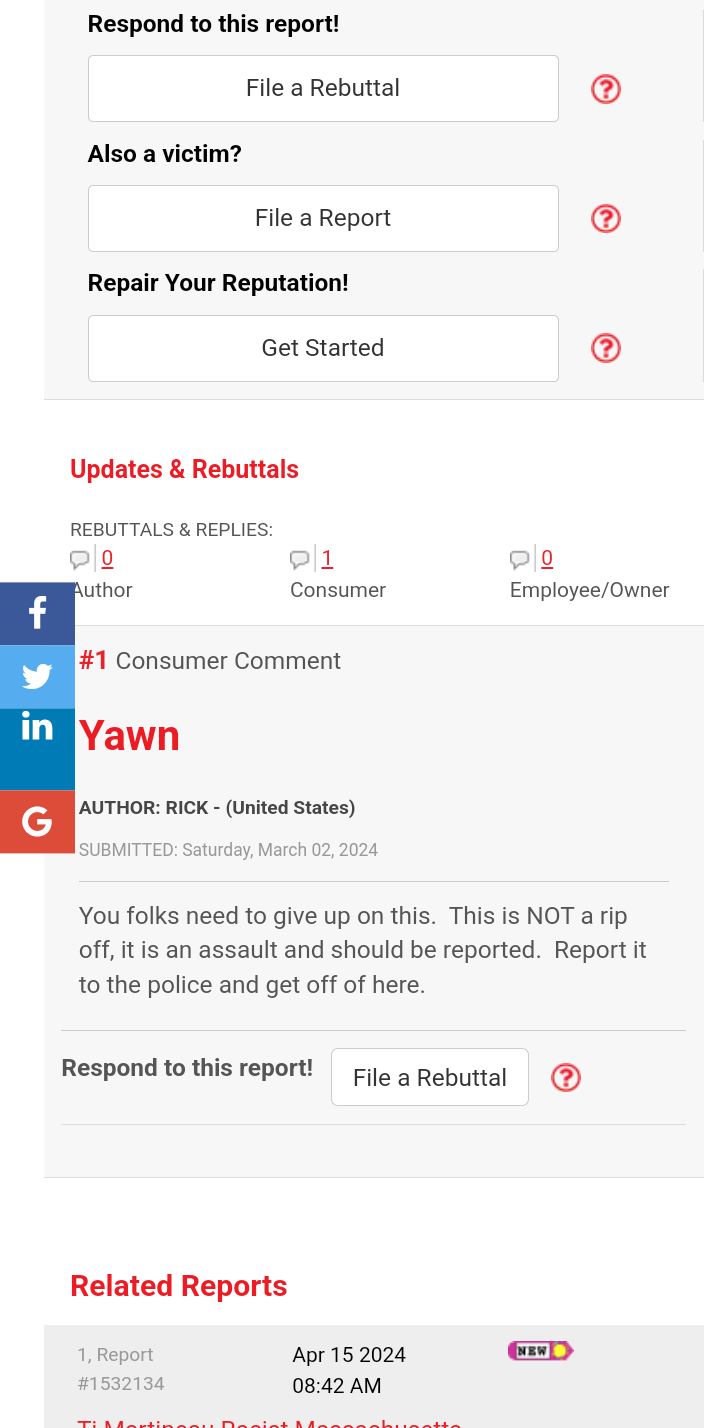- Report: #1526620
Complaint Review: Alexander Paul Martino -
Alexander Paul Martino E-COMMERCE PONZI PIRATE. PLUNDERING MILLIONS ... FROM THOUSANDS. Details His Walmart, Amazon, Shopify Scams...Alex Martino's his crimes against his clients; grand theft and larceny, fraud in the inducement, breach of contract, false advertising, client abandonment, conversion, unjust enrichment, my criminal charges and complaint filed with the Superior Court...AND... the names of his new scam businesses. It's available on Amazon, ASIN: B0BTMGVDPD. ISBN 978-1-7923-4 https://www.amazon.com/dp/B0BTMGVDPD#detailBullets_feature_div Alex stole millions from thousands of people
Report Attachments

I stared in horror at my bank balance. $25,000 was gone. This was my new bank account. It was so new, in fact, that B of A wouldn’t release my funds for another day, after their required 14-day hold to verify that the initial deposit was legitimate. It was March 14, 2022. I looked at the transactions. Alex Martino had cashed the “Good Faith”
check he had promised to hold. Although B of A wouldn’t let me make a branch withdrawal, I found out that I could Zelle a certain amount each day. I asked Alex Martino, CEO, Scaling Group LLC if he would hold a Good Faith check for while I funded the Amazon-Shopify Bundle over the next few days. But on March 13, 2 days before the new account would be transactional, B of A had paid the $25,000 Good Faith check that Martino had deposited on Friday, March 11.
I immediately called Alex on his cell several times, and as it went straight to voicemail, my intuition clearly understood that he was avoiding me. Well, this changed everything, didn’t it?
I kept calling him. He wasn’t going to take my call. It had been a week since we signed the Shopify contract, and he
still hadn’t emailed me the copy that we had signed on March 7th, that he had promised to send me the next day.
I felt sick. I realized that despite all of my due diligence and research on Alex Martino, including meeting him and discussing his E-commerce services, that he’d defrauded me. He had plundered $65,000 from me, and I didn’t even have a contract.
I was terrified. Alex had gotten our family’s entire fortune...
PONZI SCHEME (NOUN)
A fraudulent investment scheme in which an operator pays returns on investments from capital derived from new investors, rather than from legitimate investment profits. Ponzi scheme operators entice new investors with abnormally high short-term rates of return. The fraudster profits by either charging fees on the “investments,” or simply fleeing with investors’ funds. Ponzi schemes generally fall apart when there is not enough new capital to pay the ever-growing pool of existing investors. The scheme is named for Charles Ponzi of Boston, Massachusetts. In the 1920s, Ponzi launched a scheme that guaranteed investors a 50% return on investments in postal coupons. Although Ponzi was able to pay his initial backers, the scheme dissolved when he was unable to pay later investors.
Alexander Paul Martino E-COMMERCE PONZI PIRATE. PLUNDERING MILLIONS ... FROM THOUSANDS. Details His Walmart, Amazon, Shopify Scams...Alex Martino's his crimes against his clients; grand theft and larceny, fraud in the inducement, breach of contract, false advertising, client abandonment, conversion, unjust enrichment, my criminal charges and complaint filed with the Superior Court...AND... the names of his new scam businesses. It's available on Amazon, ASIN: B0BTMGVDPD. ISBN 978-1-7923-4
























